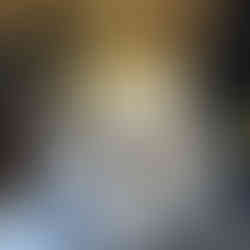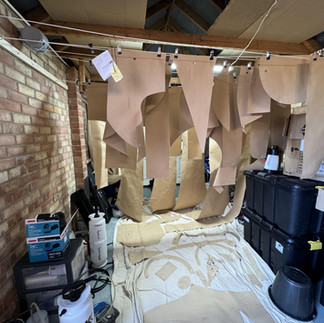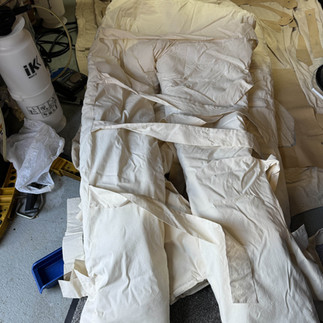Achieving Fire Resistance in Art: Our Process and Services
- Adam Sawyer

- Jun 13, 2024
- 3 min read
Updated: May 24, 2025
Public installations and commercial art displays must balance aesthetic expression with safety compliance. At Fireproofing Ltd, we help artists, galleries, and curators achieve BS-standard fire resistance through precise, certified fire retardant spraying services — without altering the look or feel of the artwork.
Who We Help
Artists with textile, fabric, or paper-based work
Art installations in galleries, museums, or public buildings
Set designers, commercial decorators, and cultural spaces
If you need to meet fire safety requirements without compromising your creative vision, we can help.
Our Process for Fireproofing Artwork
1. Initial Consultation & Requirements
We start with a full review:
Images of the art pieces
Details of installation environment
Required certification (e.g. BS 5867 or BS 5852)
Most common standards:
BS 5852 Part 1 – for soft furnishings (ignition from cigarettes/matches)
BS 5867 Part 2 Type B – for textiles (curtains, wall hangings, drapes)
2. Feasibility & Free In-House Testing
Once we understand your needs:
We assess the material type, porosity, finish, and dimensions
We offer free in-house testing to confirm the treatment won’t affect the finish or colour
If suitable, we issue a clear, itemised quote covering:
Treatment method (on-site or off-site)
Materials and labour
Optional additional services
3. Treatment Options
On-Site Treatment
Ideal for large, immovable pieces or venue-based installations. We attend early or out of hours where needed.
Off-Site Treatment
Transport smaller works to our facility for controlled, fast turnaround.
4. Fire Retardant Application Process
Every treatment is tailored:
Chemical preparation based on the material’s absorption and finish
Even spraying with specialist equipment for full surface coverage
Drying and curing, allowing the solution to bond invisibly to the material
We treat fabrics, canvas, paper, costume pieces, installation props, and more.
Case Studies: Fireproofing in Practice
🔹 Preston Manor, Brighton – Opium Den Installation
Need: BS 5867 Part 2 Type B certification for themed fabrics
Challenge: All fabrics treated on-site before opening hours
Outcome: Full compliance without altering the visual impact of the installation

🔹 Somerset House, London – Giant Trousers & Painted Paper
Need: BS 5852 Part 1 certification for costumes and thick paper
Challenge: Needed to test fire retardant on fluorescent paint and paper
Solution: Samples tested in-house, then 300+ items treated off-site
Outcome: Certified, safe, and visually unchanged
What You Receive
Certificate of Compliance (BS 5867 or BS 5852, as required)
Detailed documentation for fire risk assessors or venue insurers
Peace of mind that your artwork is safe, tested, and protected
Contact Us to Protect Your Art
We make it easy to achieve fire safety without compromising your artistic integrity. Let's discuss your project today.
📞 Phone: 07970 522475
📧 Email: adam@fire-proofing.co.uk
Why Artists Choose Fireproofing Ltd
🎨 35+ years’ textile and fire treatment experience
🔬 Free testing to ensure your finish remains unchanged
🧯 Expertise in BS 5867 & BS 5852 certification
🚚 On-site or off-site service available UK-wide
🏛️ Trusted by Somerset House, museums, galleries, and independent artists
Frequently Asked Questions
Will fire retardant treatment change the look of my art?
No — we test materials beforehand to ensure the finish is preserved.
How long does the process take?
Off-site treatment is usually complete within a week. On-site appointments are flexible to suit your schedule.
Can you test before I commit?
Yes — we offer free in-house testing for suitability.
Final Word: Protect Art, Without Compromise
Safety is essential — especially in public or commercial settings. At Fire Proofing Ltd, we help artists keep their vision intact while meeting strict fire safety standards.
📞 Call today on 07970 522475
About the Author: Adam Sawyer
Adam is an industry expert with over 35 years of experience in textile care and fire retardant treatments. He is the founder of Fireproofing, a company specializing in fire retardant spraying and application services for curtains, fabrics, upholstery, wood, and more. With a strong commitment to customer satisfaction and safety, Adam has built lasting relationships with clients and established a reputation for excellence in the field. To learn more about Adam and Fireproofing, visit the About Us & Our Expert page on our website.














Comments